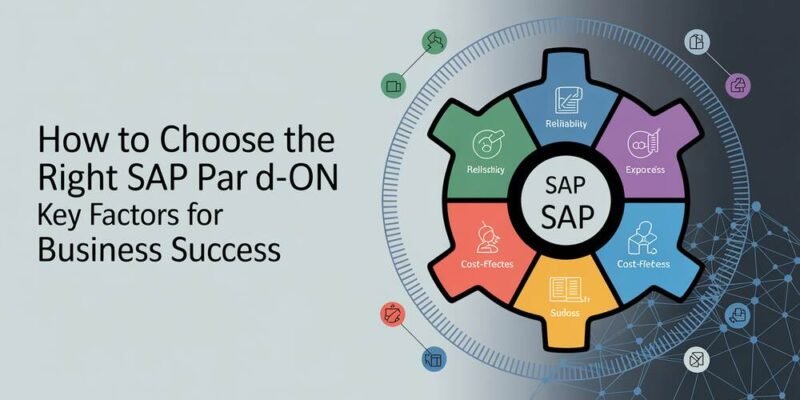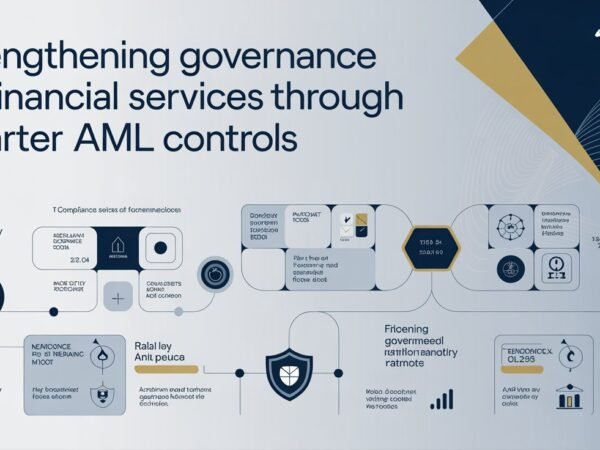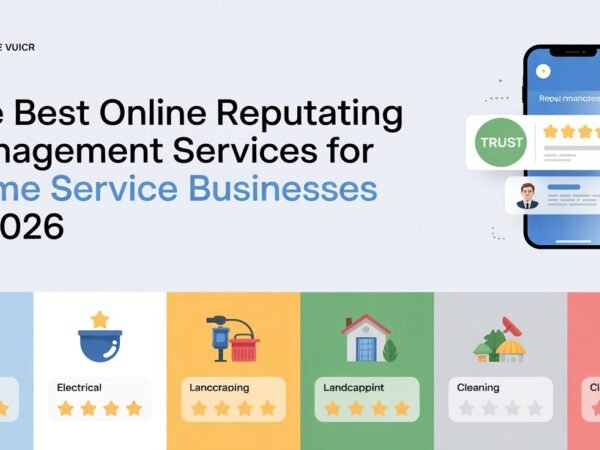In today’s digitally fueled business world, it’s not just about utilizing SAP ERP systems for core capabilities—it’s also about adding capabilities to support specific business requirements. That’s where SAP add-ons fit in. These products, designed to integrate harmoniously with SAP systems, extend core modules with niche competencies or industry-specific functionalities.
Yet, selecting an appropriate SAP add-on partner is a decision that can significantly impact your operations, scalability, compliance, and ROI. With hundreds of vendors providing numerous add-ons, determining the best-fit partner requires a detailed assessment based on more than product demos. This extensive guide takes you through ten critical factors that businesses need to take into account to ensure a successful partnership.
Know Your Business Needs and Process Gaps
Before approaching any partner, companies need to clearly define their business pain points and what they want to address using an SAP add-on. These typically include: Manual or inefficient processes Compliance gaps Scalability issues with existing SAP modules Short- and long-term functional requirements mapped out The right SAP add-on partner will help you map these requirements to solution capabilities and recommend whether a custom add-on or off-the-shelf integration best addresses your needs.
Assess the Partner’s SAP Competency and Certification
SAP add-on partners differ greatly in incompetence. Your selected vendor should possess the following: SAP certification for their add-ons (e.g., SAP Certified – Integration with SAP S/4HANA) Demonstrated expertise in SAP architecture, modules, and enhancement frameworks. A team of SAP-certified developers and consultants An SAP-certified partner guarantees technical harmony, seamless integration, and adherence to SAP’s development principles. Additionally, this certification indicates strong long-term sustainability and product maintenance.
Ensure Integration Compatibility and Future-Proofing
Your SAP add-on needs to integrate seamlessly with your current system landscape—whether that’s ECC, S/4HANA, or a mixed environment. Check for: Real-time integration functionality through APIs or BAPIs Cloud, on-premise, or hybrid architecture support Roadmaps aligned with SAP future releases (e.g., S/4HANA upgrades) Minimal disruption to core SAP customizations Verify if the add-on is upgradeable or migratable. Future-proof solutions protect your investment and reduce technical debt during major SAP upgrades.
Evaluate Industry and Domain Expertise
Different industries have varying compliance, operational, and reporting requirements. A partner with vertical expertise is better positioned to understand your issues. For example: Retail-centric partners understand POS integration and SKU-level data. Manufacturing experts understand the intricacies of shop floor automation, bill of materials (BOM) management, and production planning. Life sciences providers offer compliance capabilities for FDA or GxP. Look for case studies or client references in your vertical to verify expertise.
Examine Product Support, SLAs, and Documentation
The best SAP add-on is only as good as the support behind it. Make sure your partner provides: 24/7 or locally appropriate technical support Well-defined Service Level Agreements (SLAs) Rapid issue resolution and escalation processes Comprehensive user guides, release notes, and configuration documentation This becomes especially critical when facing mission-critical errors during peak operations or after SAP version upgrades.
Consider Implementation and Customization Flexibility
No two SAP landscapes are the same. The partner must offer a tailored implementation plan, including: Discovery and fit-gap analysis Configuration and limited customization Integration testing User training and knowledge transfer If you require additional custom features, ensure the partner can provide them without compromising core system performance or SAP support entitlements.
Check References, Client Testimonials, and Case Studies
References help validate your expectations with actual outcomes. Contact: Customers using the same SAP version or modules as you Organizations of comparable size or industry Customers who have experienced a complete implementation cycle with the partner Case studies with before-and-after metrics (e.g., cost savings, cycle time improvement, or user adoption rates) are helpful for risk assessment.
Familiarize Yourself with Licensing Models and Total Cost of Ownership (TCO)
Cost structures vary significantly among SAP add-on vendors. Typical models include: One-time license with yearly maintenance Subscription pricing (monthly or annually) Per-user or usage-based pricing Maintain clear visibility into licensing fees, hidden charges, future upgrade costs, and integration service expenses. Your ideal partner helps you calculate the Total Cost of Ownership (TCO) over 3–5 years, including implementation, support, and scalability costs.
Security, Compliance, and Data Privacy Standards
Security and regulatory compliance are non-negotiable. Your SAP add-on partner must comply with the following: GDPR, HIPAA, or SOX compliance, where applicable SAP authorization principles and role-based access Secure data handling procedures Audit trails and logging features Confirm if the partner undergoes periodic security audits or penetration testing. Also, ensure their software doesn’t introduce vulnerabilities into your SAP landscape.
Scalability and Roadmap Alignment
The add-on you choose should grow with your company. Ask if the partner’s solution: Provides modular upgrades or enhanced features Has a published product roadmap with periodic updates Supports integration with other SAP or third-party applications Can scale across geographies, languages, and multi-currency environments Avoid vendors offering one-off solutions without long-term innovation plans. A strategic SAP add-on partner invests in ongoing R&D and roadmap transparency.
Final Thoughts: Turning Your SAP Ecosystem Into a Competitive Advantage
Selecting the right SAP add-on partner isn’t just a procurement decision—it’s a long-term strategic investment. A strong partner can help you: Maximize your SAP system’s ROI Adapt to evolving industry demands Enhance operational flexibility and data visibility Remain compliant and competitive in a digital-first environment Though the review process might seem lengthy, the risks of choosing the wrong partner—from system instability to compliance violations—are far greater. By evaluating partners on expertise, support, flexibility, cost transparency, and future-fit alignment, organizations can confidently extend their SAP ecosystem with minimal risk and maximum value.
Need a Reliable SAP Add-On Partner?
If you’re ready to take your SAP capabilities to the next level, contact our SAP-certified experts. We assist in determining your needs, reviewing compatible add-ons, and providing end-to-end support to unlock the full potential of your SAP investment.
Do Read: Executive Large Office Moving Services Sherman Oaks













